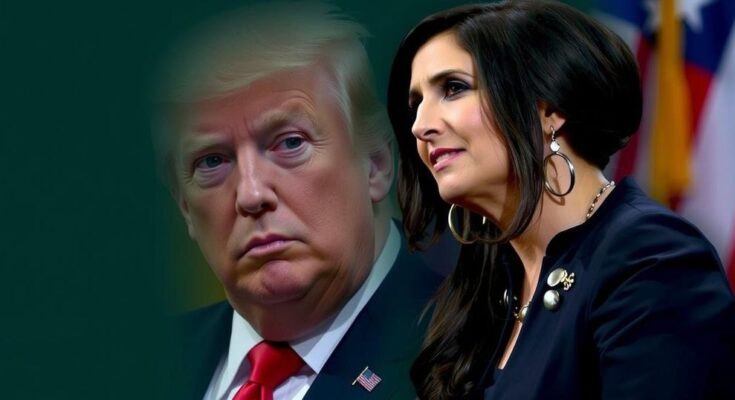President-elect Donald Trump has nominated Tulsi Gabbard as Director of National Intelligence, a choice that may spark a fierce confirmation battle. Gabbard, a former Democratic congresswoman and Army veteran, aligns with Trump’s America First philosophy, promising a new approach to the intelligence community amidst her controversial history and calls for peace in foreign affairs.
In a bold move signaling potential upheaval within the U.S. intelligence infrastructure, President-elect Donald Trump has appointed Tulsi Gabbard, a former Democratic congresswoman and vocal Trump supporter, as his selection to serve as the new Director of National Intelligence. Known for her tenacious spirit and military background, Gabbard’s nomination is already stirring up a storm in political circles, hinting at an intense battle for confirmation ahead. Trump praised her commitment, stating, “For over two decades, Tulsi has fought for our Country and the Freedoms of all Americans. As a former Candidate for the Democrat Presidential Nomination, she has broad support in both Parties – She is now a proud Republican!” Gabbard’s unique positioning as a veteran with experience in the national dialogue about foreign policy adds a layer of intrigue to her candidacy. Though her presidential aspirations fell short in 2020, she garnered attention for her anti-interventionist stances, advocating for a shift in how America engages abroad. Gabbard’s relationships with Trump allies, such as Steve Bannon, compound her significance in this new role, which is seen by some as a necessary challenge to an “out of control and destructive intelligence community.” Her controversial past, including her willingness to engage with figures like Syrian President Assad, has led to scrutiny, illustrating a complex narrative of national interests versus peace initiatives.
The appointment of Tulsi Gabbard as Director of National Intelligence reflects the shifting sands of American politics, especially during a period of intense polarization. Having transitioned from the Democratic ranks to staunch Trump ally, Gabbard embodies a blend of military service and controversial political stances, particularly towards U.S. foreign policy. Her prior candidacy brought attention to the complexities of American military intervention and foreign engagement, suggesting a potential realignment in how intelligence operations may be conducted under her watch.
Trump’s selection of Tulsi Gabbard as the next Director of National Intelligence marks a pivotal moment in U.S. politics, merging the realms of military experience and a push for alternative foreign policy. As this nomination unfolds, it promises to ignite discussions and debates over intelligence management and America’s role in global conflicts. Gabbard’s unique perspectives and experiences will likely challenge traditional narratives within the intelligence community and contribute to a broader dialogue on national security.
Original Source: www.cnn.com



